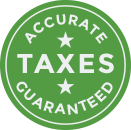The three best ways to contribute to charity
The three best ways to contribute to charity Cash Donations Outright gifts of cash (which include donations made via check, credit card, and payroll deduction) are the easiest. The key is to substantiate them. To be deductible, cash donations must be: Supported by a canceled check, credit card receipt, or written communication from the charity…
Tax status of your retirement savings
Tax status of your retirement savings The first step in this process is to analyze the type and tax status of your retirement savings. For this purpose, divide your accounts into three categories: Taxed Later: Traditional IRAs, 403(b), and 401(k)s are types of savings accounts that give you a tax deduction at the time you contribute….
What is the Tax Treatment of Forgiven Student Loans?
What is the tax treatment of forgiven student loans? Now that President Biden has announced student loan relief, the state tax treatment of forgiven loans is of interest to many ministers. Ministers who have student loans forgiven are spared a federal tax bill, but not all states treat forgiven loans the same. A forgiven loan amount is…
Providing Donors With Tax Acknowledgements
Providing Donors With Tax Acknowledgements A donor may be eligible to claim a deduction on his or her tax return for qualifying charitable donations. However, it is not the recipient organization’s role to determine the tax consequences of any donor’s charitable actions. Such a determination is, as a matter of tax law, ultimately between the…
Educators Can Deduct Up to $300
Educators Can Deduct Up to $300 in Out-of-Pocket Classroom Expenses in 2022 For 2022, the maximum expense deduction eligible educators may take for qualifying out-of-pocket classroom expenses has increased to $300, even if they take the standard deduction. Educators who are married and file a joint return with another eligible educator can deduct up to…
It’s Not Too Late – Employee Retention Tax Credit
Employee Retention Tax Credit – It’s Not Too Late By now, most churches have heard of or even claimed Employee Retention Tax Credits (ERTC). Those that have taken advantage of the credit have seen hundreds of thousands to millions of dollars in benefits for retaining employees in 2020 and 2021. ERTC has been a lifeline for…
Summertime Fiscal Year Transitions
Summertime Fiscal Year Transitions Happy New Year in the summer! For some churches and other nonprofit organizations, this is a sensible statement. Most nonprofit organizations decide to follow the calendar year as their tax year (or “fiscal year”) when they are formed. Upon incorporation, some states require disclosure of the month in which the organization’s…
ICHRA vs. QSE-HRA
ICHRA vs. QSE-HRA Churches were relieved when the Qualified Small Employer Health Reimbursement Arrangement (QSE-HRA) came into law in late 2016. Finally, there was an affordable health coverage option for small churches. The plan was quickly adopted by thousands of small churches and remains extremely popular today. In June 2019, The President announced continuing HRA…
W-4 Instructions for Clergy
The W-4 form contains five steps. Not every step is applicable to every employee, so some sections might correctly remain blank. Step 1. Here, clergy and nonclergy would provides personal information. Make sure the name, address, and social security number entered match what Payroll has on file. This section also asks filing status: single or…
What is an IRS payment plan?
What is an IRS payment plan? An IRS payment plan is an agreement you make directly with the IRS to pay your federal tax bill over a certain amount of time. There are two kinds of IRS payment plans: short-term and long-term. Typically you’ll make monthly payments to settle what you owe. So long as…






